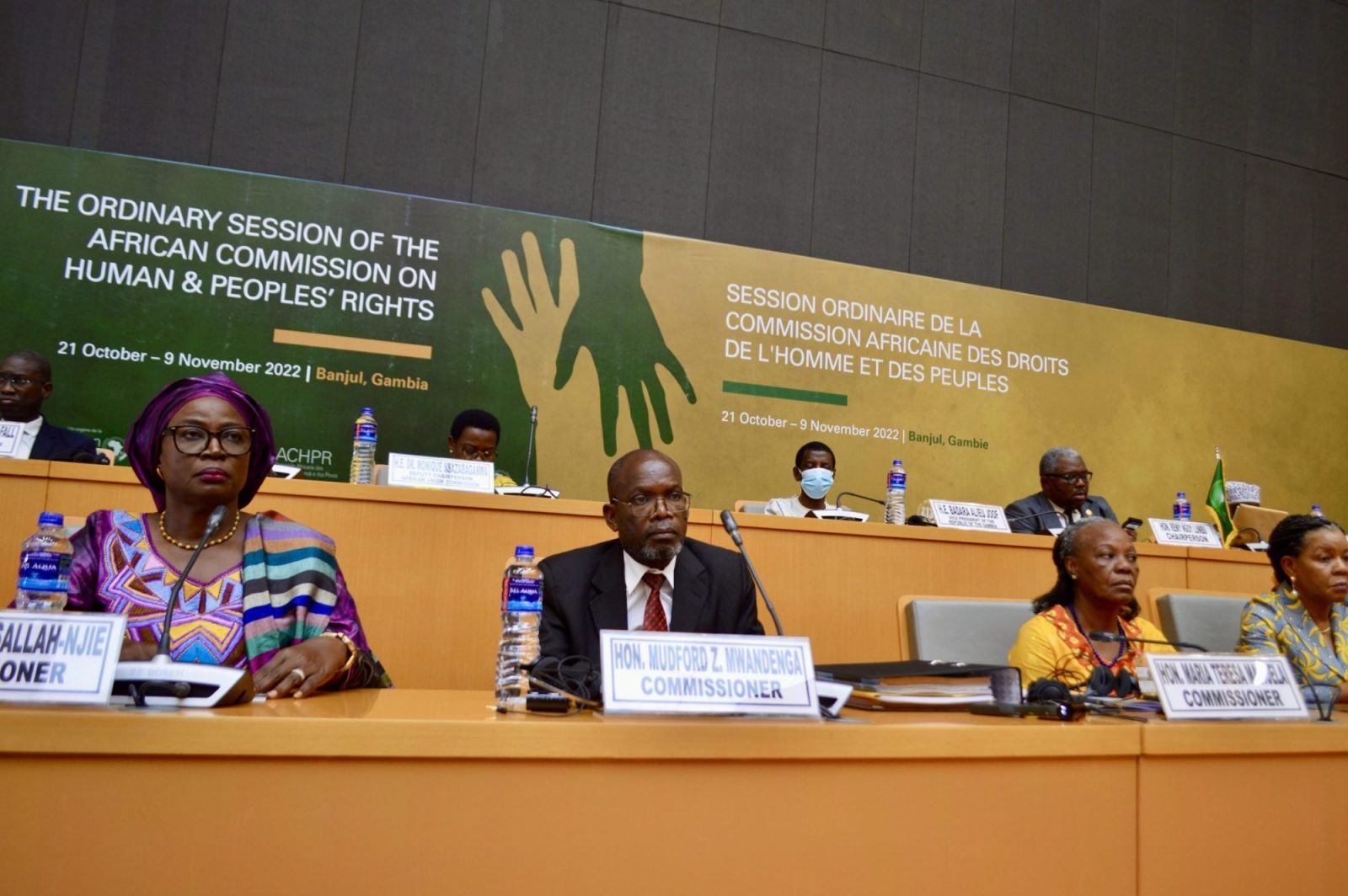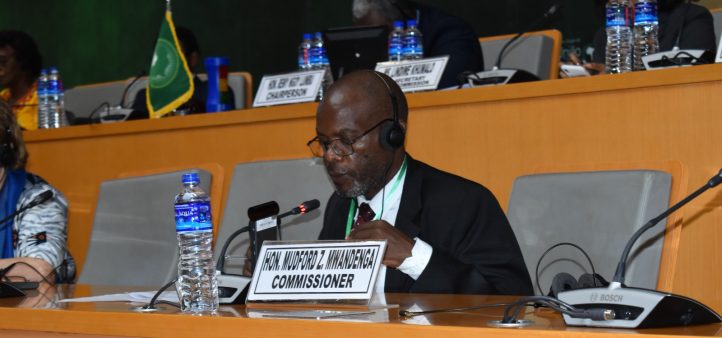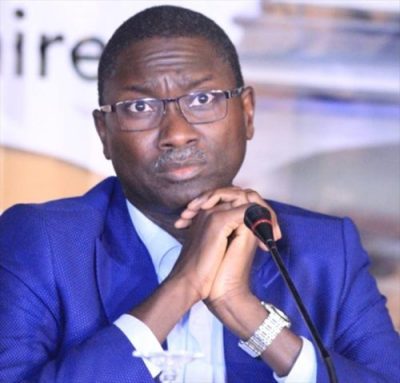Before the opening ceremony, on 20 October 2022, to commemorate the 35th anniversary of the Commission, the Government of the Gambia offered the title deed of a piece of land for the construction of the headquarters of the secretariat of the Commission in Bijilo, the Gambia. As part of its 35th Anniversary commemorative interlude, on 21 October 2022, the Commission also launched its rebranded website and new logo and a Compendium of African Human and Peoples’ Rights Law.
An impressive number of people attended the 73rd Session. A total of 874 delegates including: 154 States representatives; 9 permanent representatives committees, 7 embassies in Ethiopia, 17 African Union organs, 3 United Nations organs; 85 National Human Rights Institutions; 31 international organisations; 537 African and international NGOs; 25 other observers and 6 members of the media.
During the opening ceremony, all speakers welcomed the celebration of the 35th anniversary of the Commission and the efforts made by the human rights mechanism on the promotion and protection of human rights on the continent. Hannah Foster, speaking on behalf of the NGO Forum Steering Committee, highlighted that “the NGO Forum noted the Commission’s instrumentality in establishing jurisprudence and setting standards and guidelines for human rights protection on the continent and also appealed to States and the international community to continue to support the Commission towards strengthening the effective implementation of its mandate”. The Deputy Regional Representative of the OHCHR, Maymuchka Lauriston, congratulated the Commission for 35 years of establishing itself as the central pillar for the promotion and protection of human and peoples’ rights in Africa and celebrated the good cooperation that has existed between the OHCHR and the Commission through the establishment of the Addis Ababa Road Map, which also marks 10 years of existence. Ambassador Hammad Salah, the Head of the African Governance Architecture Secretariat at the African Union highlighted the Commission’s pivotal position in Africa’s human rights history, and the need for the Commission, the African Court and the African Committee of Experts on the Rights and Welfare of the Child, to continue to cooperate in enhancing their commitment to delivering on human rights for all Africans. Ana Celeste C. Janúario, Secretary of State for Human and Citizens Rights of Angola, representing the expressions of States parties to the African Charter, underlined the fact that the 35th anniversary also marked 41 years of the African Charter. In the name of all Member States to the African Charter, she restated the need for State collaboration and commitment to the realisation of Africa’s Agenda 2040, for “an Africa fit for children”, and Agenda 2063 for “the Africa we want”. Commissioner Rémy Ngoy Lumbu, Chairperson of the Commission, expressed profound appreciation to the Government of Gambia, to all participants especially all former and present Commissioners and partner institutions, who have been supporting the work of the Commission, in delivering on its mandate. On the general trend of regression in human rights on the continent, “States must uphold their human rights commitments, and citizens of Member States should approach the Commission’s protection mechanisms to seek redress for rights violations,” he urged.
“The commemoration must serve as a platform for exchange among all stakeholders, in order to engage in an objective evaluation of the challenges that prevail in the promotion and protection of human rights on the continent. Human rights remain at the heart of the African Union’s policy, and it is in this context that the latter has recently adopted a Strategic Plan for the Promotion and Protection of Human and Peoples’ Rights 2021-2030” reiterated Monique Nsazabaganwa, Deputy Chairperson of the African Union Commission (AUC), speaking on behalf of Moussa Faki Mahamat, Chairperson of the AUC. Ismaïla Madior Fall, minister of Justice and Keeper of the Seal of the Republic of Senegal, speaking on behalf of Macky Sall, President of the Republic of Senegal and Chairperson of the AU, congratulated the Gambia’s dedicated support to the Commission over the years. He celebrated the growing engagements around the promulgation of the rights of older persons and persons with disabilities and expressed President Macky Sall’s commitment as the AU Chairperson, to enhancing Africa’s full collaboration towards a human rights success across the continent.
Panel discussions
Panel discussions on various themes were organised during the session. On 22 October 2022, the Commission held a panel discussion on the Next Decade of the Addis Ababa Road Map. The Addis Ababa Roadmap is a guiding framework for cooperation between UN Special Procedures and mechanisms and those of the Commission in several ways. Despite the remarkable achievements, it still faces numerous challenges, such as inadequate communication and strategic planning to a persistent shortage of dedicated funding to achieve its objectives.
The Guidelines on Shadow Reporting of the African Commission on Human and Peoples’ Rights were launched on 23 October 2022, for relevant stakeholders, including National Human Rights Institutions, NGOs with observer status, institutions and any other interested party submitting civil society reports under the African Charter.
On 25 October 2022, the Commission launched the Guidelines on the protection of all persons against enforced disappearances in Africa, the first legal and enforce reference instrument that all stakeholders should take ownership of to ensure the protection of all persons against enforced disappearances in Africa.
Activity report of members of the Commission
In accordance with rules 25(3) and 64 of the Rules of Procedure (2020) of the Commission, members presented their intersession reports highlighting the activities undertaken in their capacity as Commissioners, country rapporteurs and mandate holders of special mechanisms on 29 October 2022. During the presentation of his report, the Special Rapporteur on the situation of human rights defenders in Africa and focal point on reprisals, commissioner Remy Ngoy Lumbu, stated that States should ensure that mechanisms set up for the protection of human rights defenders are inclusive and feature representatives of civil society in their composition. He also congratulated Côte d’Ivoire, Burkina Faso, Mali and Niger for having adopted laws for the protection of human rights defenders before calling States to refrain from adopting repressive laws that restrict the civic space and legitimate activities of human rights defenders to promote and defend human rights. Following the presentation of his report, ISHR registered to deliver a statement on the situation of human rights defenders in Africa, with a particular focus on progress in drafting and enacting legislation to protect human rights defenders and expressed concern about reprisals against those who engage with the African human rights system and the impact of unconstitutional changes of government on protecting human rights defenders.
State reviews
In accordance with article 62 of the African Charter, the Commission considered periodic report for the period 2016-2019 of Côte d’Ivoire and the combined report comprising the 15th, 16th and 17th periodic reports of the Islamic Republic of Mauritania, for the period 2018 – 2021 under the African Charter, the Protocol to the African Charter on the Rights of Women in Africa (Maputo Protocol) and the Convention for the Protection and Assistance of Internally Displaced Persons in Africa (Kampala Convention). Côte d’Ivoire and Mauritania failed to deliver a report covering the three instruments.
The Delegation of Côte d’Ivoire raised that the government continued its efforts to improve the human rights situation in the country. Indeed, law No. 2018-900 of 30 November 2018 established the new National Council for Human Rights (CNDH), laying out its attributions, organisation and functions and reinforcing the compliance of the institution with the Paris Principles and the decree No. 2017-121 of 22 February 2017 on the modalities of application of law No. 2014-388 of 20 June 2014 on the promotion and protection of human rights defenders.
The Delegation of Mauritania highlighted some positive steps taken by the government to protect the rights of its citizens through the adoption of law No. 2018-023 of 21 June 2018 criminalising discrimination, which domesticates the provisions of the Convention on the Elimination of All Forms of Racial Discrimination and law No. 2015-031 of 10 September 2015, criminalising slavery and punishing slavery-like practices.
Observer status for NGOs
In accordance with its Resolution 361 on the Criteria for Granting and Maintaining Observer Status to Human Rights NGOs in Africa, the Commission granted Observer Status to three NGOs, namely:
- Collaboration on International ICT Policy for East and Southern Africa;
- Protection International Africa; and
- Rule of Law and Empowerment – Partners West Africa Nigeria.
This brings the total number of NGOs which have observer status with the Commission to 544.
According to the Commission, as “sexual orientation is not an expressly recognised right or freedom under the African Charter, and contrary to the virtues of African values, as envisaged by the African Charter”, the Commission rejected applications for Observer Status for three NGOs namely:
- Alternative Côte d’Ivoire;
- Human Rights First Rwanda; and
- Synergía – Initiatives for Human Rights.
This decision of the Commission severely limits the capacity of the mechanism to ensure the protection and safeguarding of human rights and the rights of human rights defenders on the continent. The decision could be seen to violate resolution 361, 2016, on the Criteria for granting and maintaining observer status to human and peoples’ rights NGOs in Africa, which recognises the important role of NGOs in assisting the Commission in the implementation of its mandate to promote and protect human and peoples’ rights in Africa. In fact, this stand in contradiction with its provision on Article 2 of the African Charter on Human and Peoples’ Rights which prohibits discrimination of the individual on the basis of distinctions of any kind, such as race, ethnic group, colour, sex, language, religion, political or any other opinion, national and social origin, fortune, birth or any status. This decision could seriously undermine and question the integrity and impartiality of the protection mechanism. Moreover, despite the progress observed, but somewhat fragile, since the adoption of resolution 275, 2014, on Protection against Violence and other Human Rights Violations against Persons on the basis of their real or imputed Sexual Orientation or Gender Identity, it could potentially constrain NGOs wishing to collaborate with the Commission to no longer collaborate with the mechanism.
To conclude, the Commission adopted three country resolutions and five thematic resolutions:
Country Resolutions:
Thematic Resolutions:
Next session of the African Commission
Following the final Communiqué, the 74th session of the Commission will be a private session and will be held virtually from 21 February to 7 March 2023. The details on the next ordinary session will be made available on the Commission’s website in due course.
Download as PDF




